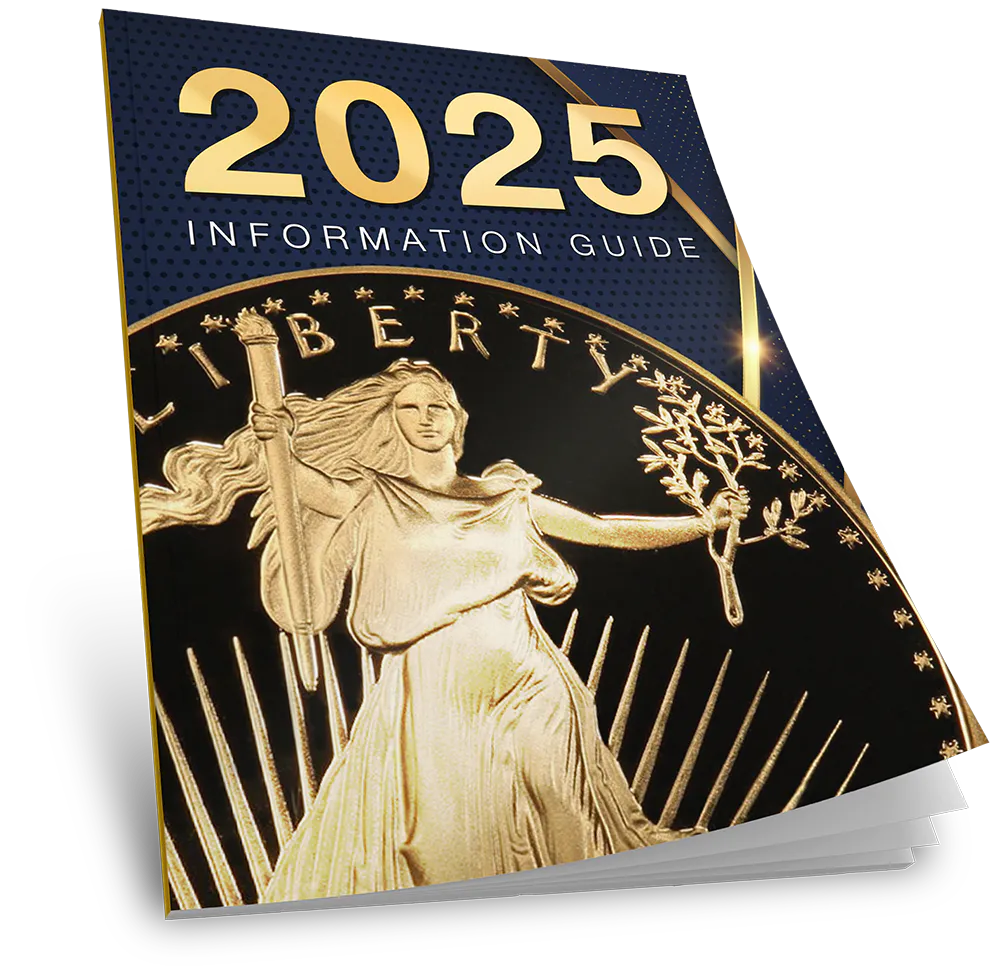- Consumer confidence has dropped for three straight months, signaling growing recession fears.
- Inflation concerns and market instability are putting pressure on household finances.
- A Gold IRA can help safeguard wealth during recession.
Economic Confidence Collapses
U.S. consumer confidence has taken a sharp downturn, raising fears that a recession may be on the horizon. The Conference Board’s consumer confidence index fell by seven points in February to 98.3. That’s its third consecutive month of decline. This drop was the largest since August 2021 and fell below economists’ expectations. Following the report, stocks and bond yields declined, reflecting broader market anxiety.1
The decline in consumer confidence was widespread. All age groups and income levels experienced the effects. Concerns about the job market, personal earnings, and business growth are on the rise. The expectation index measures consumers’ outlook for the future. It dropped 9.3 points to 72.9—well below the recession warning threshold of 80. Also, the share of Americans expecting a recession in the next year is now at a nine-month high.2
.
 3
3
Inflation Concerns
Inflation expectations have surged as well. Inflation is sticky as prices for things like eggs keep rising. Also, uncertainty about tariffs is adding to financial worries. Concerns are rising among economists. They think tariffs on imports from Canada and Mexico could increase gas and food prices. They could also harm the auto industry and lead to a trade war.
The University of Michigan’s consumer sentiment index also reflected this economic unease. It showed increasing inflation fears as well. Rising inflation expectations can become a self-fulfilling prophecy. They make it harder for the Federal Reserve to adjust monetary policy. Not only could the Fed rule out rate cuts, but analysts now warn that rate hikes could be possible if inflation continues to rise. Higher interest rates will make borrowing more expensive. Mortgages, auto loans, and credit cards will cost more. Putting even more strain on American households.
Cutbacks in Spending
Economic anxiety has already begun to impact consumer behavior. A Wells Fargo study shows that uncertainty is making Americans hold off on big purchases. And that one in eight workers has postponed retirement plans. Meanwhile, the stock market is showing signs of stress. The “Magnificent 7” stocks have fallen into correction territory. This comes after a two-year rise of 54%. The group has lost $1.6 trillion in market value, with Tesla leading the decline at 37%.4
Treasury Secretary Scott Bessent stated that the U.S. private sector has been in a recession. He blames the Biden administration. Saying its policies put government growth ahead of private industry. He argued that government spending created the illusion of strong economic metrics. But real economy was turning brittle underneath.
Bessent noted that job growth occurred primarily in government, education, and healthcare. Meanwhile, private-sector job creation slowed, adding fewer jobs in 2024 than in 2023. He warned that excessive government spending distorts the economy. It inhibits innovation, and limits growth to select sectors. “This is about more than just reducing the fiscal deficit,” Bessent said. He emphasized that the administration’s goal is to “re-privatize the economy.” He wants to restore balance between public and private sector growth.

Recession Indicators
Several key recession indicators suggest trouble ahead. Morningstar, the investment research firm, includes all of the following as key signals of a looming recession:
Inverted yield curve: The yield curve was inverted for more than two years. It turned positive at the end of 2024. Past data shows that a recession often starts within six months after a yield curve inversion ends.5
Stock market decline: On February 21, 2025, the Dow Jones plummeted. It dropped 748 points, marking its worst day of the year.6
Decreased home sales: U.S. existing home sales fell more than anticipated in January 2025.7
Inflation worries: In February 2025, the University of Michigan’s consumer sentiment index fell by 10%. The drop was primarily a result of fears about inflation.8
How Likely Is a Recession?
Some official recession predictions remain relatively low. JPMorgan estimates a 20% chance of a recession, while Bankrate puts the odds at 26%. However, these same experts predicted there would be severe recessions in 2022 and 2023. They were wrong then and they may be wrong today. Their models paint a picture that is disconnected from the day to day reality of Americans who make up the ‘economy’.9
Independent economists are painting a grimmer picture. A consulting economist at Primerica believes there is over a 50% chance of a recession in the next year. They point to global issues like war, trade disputes, and political instability as reasons for their concerns. A Raymond James analyst recently estimated a 40% chance of recession in a Wall Street Journal survey. This is one of the highest probabilities among major financial firms. Fears of a trade war reminiscent of the Great Depression, along with AI-driven volatility in stock markets, add to concerns.10
Debt also looms large in recession fears. If the U.S. Treasury has to raise bond yields to fund spending, inflation may rise. Worsening economic conditions.
Conclusion
Caught between rising inflation and a potential recession, retirement funds are at risk. History has shown that during times of economic uncertainty, people flock to gold as a safe-haven asset. Diversifying with precious metals can provide long-term protection against market downturns.
A Gold IRA from American Hartford Gold offers a reliable way to safeguard wealth from economic turbulence. Call us today at 800-462-0071 to learn more about how gold can help secure your financial future.






